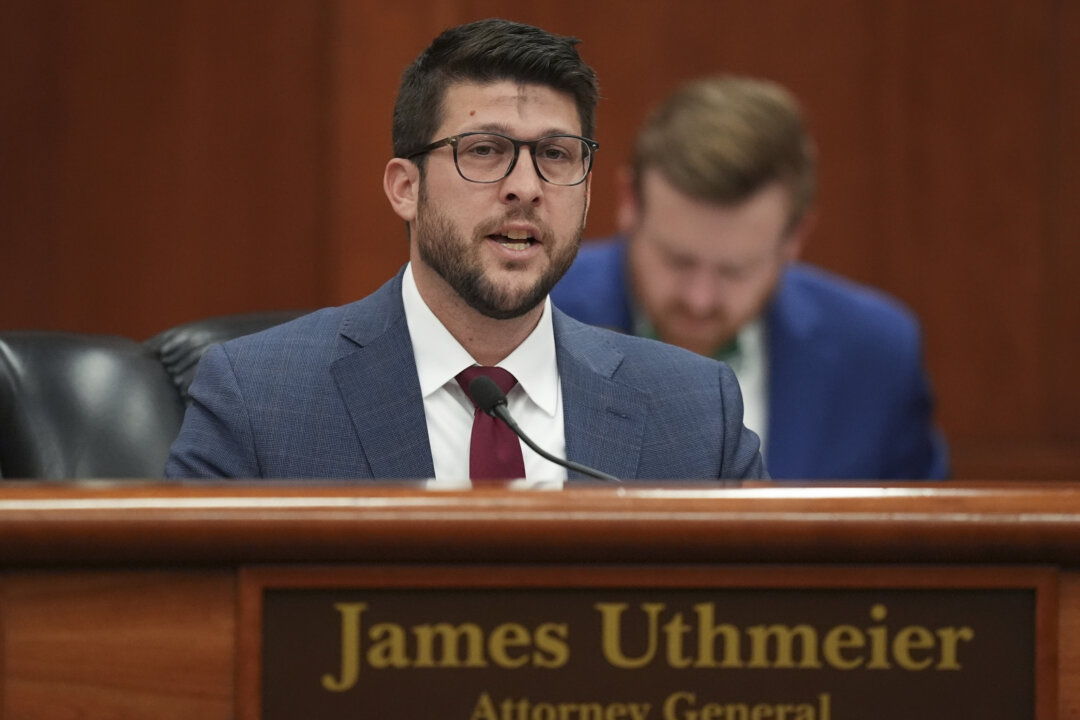
SUPPORT THE OCA
Support Pours In: 1,000 Donations Nationwide and Internationally
Our Spring 2025 Fundraiser continues. We are excited to share our great progress and some good news!

TAKE ACTION
Take Action on Engineered Nanotechnology Ingredients
Engineered nano ingredients are so small they can poke holes in our stomach lining, break into our cells, and cross our blood-brain barrier. This can trigger the body’s inflammatory and immune responses, cause cells to die or become dysfunctional, and damage the brain. Impacts include allergic reactions, autoimmune disease, heart attack and stroke, cancer, and dementia.
Despite these dangers, the Food & Drug Administration has allowed engineered nanoparticles in things we ingest and rub on our skin—all without any safety testing or labeling. Engineered nanoparticles are ubiquitous in non-organic processed foods of all kinds, from candy to infant formula. They’re even in medications, baby bottles, and plastic storage containers.
In 2007, President George W. Bush‘s Food & Drug Administration turned the law on its head, announcing that, while it had the power to regulate nanotech ingredients as food additives, companies could treat them as “generally recognized as safe” unless or until the FDA made a decision on how to define nano. That never happened. In 2022, the European Union banned the most common nanotech ingredient, titanium dioxide. The FDA was petitioned to do the same in 2023, but hasn’t made a decision yet.
On March 10, 2025, Health & Human Services Secretary Robert F. Kennedy, Jr., promised to close the “generally recognized as safe” (GRAS) loophole that allows dangerous food additives to enter the marketplace without premarket safety testing. This could mean ingredients made with nanotechnology might finally be safety tested as food additives!
TAKE ACTION: Tell Sec. Kennedy: Nanotech Shouldn’t Be “Generally Recognized As Safe”
READ MORE: How to Avoid Dangerous Engineered Nano Ingredients In Food, Body Care & Medicine

FOOD & FARMING
The Past 100 Days Have Been Devastating for Food, Farming, and Fairness-Now Is the Time To Look Forward
Kate Anderson writes for Civil Eats:
“To understand the scale and implications of these actions, recall where we stood before Trump returned to office. After more than a century of agricultural policy dominated by corporate consolidation and environmental degradation, there were signs of transformation. Advocates, scientists, and farmers were successfully pressing the U.S. Department of Agriculture (USDA) to support a fairer and more ecologically sound food system.
Modest, imperfect policies had begun to shift momentum. Equity-centered programs started to open long-closed doors for historically marginalized producers. Climate-friendly practices like cover cropping, managed grazing, and conservation tillage were gaining ground.
Copious scientific evidence was steering more research funding from extractive, chemical-heavy agriculture toward agroecological systems that nurture soil health and biodiversity. Initiatives supporting local and regional markets helped schools and food banks buy from nearby farms, keeping dollars in communities, strengthening regional food security, buoying small and midsize farms, and delivering healthy food.”

NATURAL ECOSYSTEMS
What is Urban Rewilding?
Cecily Layzell, Imagine5:
“When you think of a city, what comes to mind? Towering skyscrapers, busy streets and endless concrete? Now imagine if some of that gray was swapped for green: lush parks, rooftop forests and wildlife corridors that allow nature to thrive alongside us. That’s the essence of urban rewilding, which aims to restore biodiversity and natural ecosystems in urban areas to create healthier and more livable cities.
Unlike traditional greening projects that focus on manicured and often fragmented parks and gardens, urban rewilding takes a more natural approach. Ecosystems are allowed to regenerate with minimal human intervention. Instead of simply adding plants to a controlled environment, urban rewilding encourages nature to reclaim spaces in a way that sustains itself over time.
Urban rewilding doesn’t have to be a massive, government-led initiative, however. If you have a garden, courtyard or balcony, consider planting native, pollinator-friendly plants. Even simple actions like installing bird boxes or leaving dead wood for insects can contribute to a healthier urban ecosystem.”
Learn how cities can become more resilient, sustainable and enjoyable places to live

NEW STUDY
Feel Stressed? Try Imagining a Forest.
Jessica Stillman, Contributor, Inc.com:
“If there is one finding in psychology research you can be pretty sure of, it’s that spending time in nature reduces stress. Study after study shows that when humans get outside, both their perceived feelings of tension and biological markers of stress go down. Here’s one from Cornell and another from Harvard if you need further convincing.
This is handy for entrepreneurs to know. If your business or your life is feeling overwhelming you might want to plan a hike or a park picnic next weekend.
The problem is, the utility of this insight has been limited to times when you can physically leave your office. That is until a recent study appeared in The Journal of Environmental Psychology. The research by a Finnish and Norwegian team found you can use nature to significantly reduce your stress no matter where you are. All you need is your brain and five quiet minutes.”

USDA WATCH
USDA Cancels Farm-To-School Grants, Undermining “Make America Healthy Again” Plan
By Ayurella Horn-Muller, Grist:
“Early in the morning last Monday, a group of third graders huddled in the garden of Mendota Elementary School in Madison, Wisconsin. Of the dozen students present, a handful were busy filling up buckets of compost, others were readying soil beds for spring planting, while a number carefully watered freshly planted radishes and peas.
Farm-to-school work, said Krug, isn’t limited to partnering with farmers to get locally grown foods into school meals, but also includes supporting schools in lower-income neighborhoods with working gardens, and providing students with agricultural and health education they won’t get otherwise. That can take the shape of after-school gardening clubs, field trips to local farms, and cooking classes.
‘We want kids to understand where their food comes from. We want them to be able to have that experience of growing their own food,’ she said. ‘It’s really, really powerful.’
Late last month, the United States Department of Agriculture, or USDA, sent them an email announcing the cancellation of funding for grants through the program.”
Read how scenarios like these are playing out across the nation

HEALTHY LIVING
Detox Your Kitchen: Three Things You Can Do Right Now To Avoid Toxic Chemicals
Tom Perkins, The Guardian:
“It seems like every week there is a new scientific study about microplastics in food, PFAS in pans, BPA in plastic containers or any other number of toxic chemicals that can stow away in our food.
I’ve been writing about toxic chemicals for years, and my friends always ask me: what do I do about it all? The list of things to worry about can seem overwhelming.
I have waded through the science – as well as the marketing materials from companies that want to assure us their products are safe – with the goal of ridding my kitchen and the food I cook of dangerous chemicals.
And I have some simple suggestions on how you can do it, too.
In collaboration with Consumer Reports, the leading independent consumer organization in the US, the Guardian has created a US-focused newsletter featuring my seven-week course on detoxing your kitchen. You can sign up here.”

ENVIRONMENT
“We Belong to One Ocean”: Indigenous Leaders Push for Seat at the Table of High Seas Biodiversity Treaty
Sonam Lama Hyolmo writes for Mongabay:
“In Native Hawaiians’ genealogical stories, says Solomon Kahoʻohalahala, the coral polyp is considered the oldest ancestor, and they hold spiritual relationships with migratory animals, including the Koholā, or humpback whale (Megaptera novaeangliae).
‘Koholā is the manifestation of our god of the sea and is revered for its ability to dive into the depths of the deep sea and the realm of the sacred place of our creation, far beyond our imaginations,’ he said. ‘Their care and protection are vital for the existence of species and Native Hawaiians.’
For generations, the traditional ecological knowledge, values, and spiritual beliefs of Indigenous peoples related to forests, lands, waters, and territories have helped conserve nature and its resources. ‘We do not see ourselves above nature, which is quite different from the colonial perspective that sees dominion over all things,’ said Kahoʻohalahala, chairperson of Maui Nui Makai Network, a group of community and partner organizations across the Hawaiian Islands.

GMOs
Big Agribiz Co-Opts Organic Principles To Promote Its “Biologicals”
Claire Robinson reports for GMWatch:
“In a classic example of how shamelessly Big Agribiz pivots its marketing, the current US Secretary of Health and Human Services Robert F. Kennedy Jr, who was part of the legal team that scored the first major court victory against Bayer’s Roundup weedkiller, is being used as an unwitting front man for “biologicals”. These are substances derived from living organisms that agribusiness companies are increasingly promoting to farmers with claims of improving soil or crop health or controlling pests and diseases – all supposedly with the added benefit of reducing use of the chemical pesticides that still provide the largest chunk of the companies’ profits.
‘Biologicals’ can be genuinely natural. For example, the biocontrols used in organic farming include ladybirds employed to combat aphids and nematodes used against slugs and snails. But they can also be genetically engineered organisms, such as GM microbes – which can pose serious risks to human and animal health and the environment. The motivation for Big Agribiz to market GMO “biologicals” is strong, given the ease with which GM products can be patented and a receptive market of farmers weary of chemical dependency and the consequent depleted soils.
We know that RFK Jr aims to reduce toxic exposures that could contribute to ill health and favours organic farming. Evidently, in the eyes of Big Agribiz, that makes him ripe for exploitation as a walking, talking ad man for the new ‘biologicals’. That’s clear from an article in the farming press promoting these products and citing representatives of the GMO agribusiness companies that develop them.”

SUSTAINABLE LIVING
The OCA’s Weekly 3
OCA’s Weekly 3 offers three simple, impactful actions each week to drive change in environmental policy, sustainable agriculture, and personal health. These actions are designed to raise awareness, influence decision-makers, and create lasting change. We’ve already seen significant victories, but real change happens through collective action. By committing to just three actions each week, you become part of a movement for a healthier planet and a more just food system. Together, we can make an even bigger difference!
1. Take Action: Keep Our Work Alive!
This week, we’re asking you to support the Organic Consumers Association (OCA). Facing a significant financial shortfall after losing a major funder, OCA has been compelled to furlough its entire staff to part-time pay. To sustain its vital work—mobilizing consumers, advocating for healthy food systems, and protecting our environment—OCA aims to raise $300,000 through a month-long fundraising campaign. If 2,400 supporters contribute $25 per month, the organization can bridge this gap and continue its mission without further cutbacks. Your support is crucial in ensuring that OCA remains a powerful voice for organic integrity and environmental justice.
2. Personal Health: Keep Glyphosate Out of Your Morning Routine!
Make sure your oat-based cereals are organic to avoid a daily dose of Glyphosate. The widespread use of glyphosate, a herbicide found in products like Roundup, has led to its presence in numerous oat-based breakfast foods, including cereals and snack bars commonly consumed by children and adults daily. Testing by organizations such as the Environmental Working Group (EWG) and the Center for Environmental Health (CEH) has detected glyphosate residues in a significant number of these products, with some levels exceeding what these groups consider safe for children . While regulatory agencies like the U.S. Environmental Protection Agency (EPA) maintain that glyphosate levels in food are within acceptable limits, concerns persist due to its classification by the International Agency for Research on Cancer as “probably carcinogenic”. This has sparked debates over food safety standards and the need for more stringent regulations to protect vulnerable populations, particularly children.
3. Environment: Native Bees Need Our Help Too!
Restoring and preserving native habitats is essential for the survival of native pollinators—including bees, butterflies, moths, beetles, birds, and bats—which are indispensable to both natural ecosystems and human agriculture. These pollinators have co-evolved with local flora, making them highly effective at pollinating native plants and certain crops. Their activities support biodiversity, enhance genetic diversity, and contribute to the resilience of ecosystems. However, habitat loss, pesticide use, and climate change have led to significant declines in native pollinator populations. By protecting and restoring native wild habitats, we create environments where these pollinators can thrive, leading to healthier ecosystems and more sustainable food systems. This approach not only benefits wild species but also enhances crop yields and promotes ecological balance, contributing to a more regenerative and resilient environment.

LITTLE BYTES
Other Essential Reading and Videos for the Week
20 Foods With More Antioxidants Than Blueberries
Oregon Supreme Court Says ‘Misleading Marketing’ Case Against Tillamook Can Move Forward
Eating Chicken Regularly Could Increase Your Mortality Risk, New Study Suggests
Study Reveals a Shocking Amount of Plastic in the Arteries of Stroke Patients
What Do Blue Zone Diets Have In Common? Polyphenols That May Slow Aging
Seed Keepers and Truth Tellers: From the Frontlines of GM Agriculture
The Toxins Around Us Threaten Our Fertility. Black Families Face an Outsize Risk
The Clean Air Act — And Your Family’s Health and Safety — Are Under Attack
Dangerous Air Pollution Impacting 156 Million Americans
Transforming Media Polarization, One Echo Chamber At A Time
Financial Stress Can Damage Your Mental Health. These Steps May Help
The Recipe for a Healthy Climate Starts at the Dinner Table
The Wholegrain Revolution! How Denmark Changed the Diet – And Health – Of Their Entire Nation
The post Organic Bytes Newsletter #892: Get Engineered Nanotech Ingredients Out of Food, Body Care Products and Medicines! appeared first on Organic Consumers.
.png)


















 English (US)
English (US)